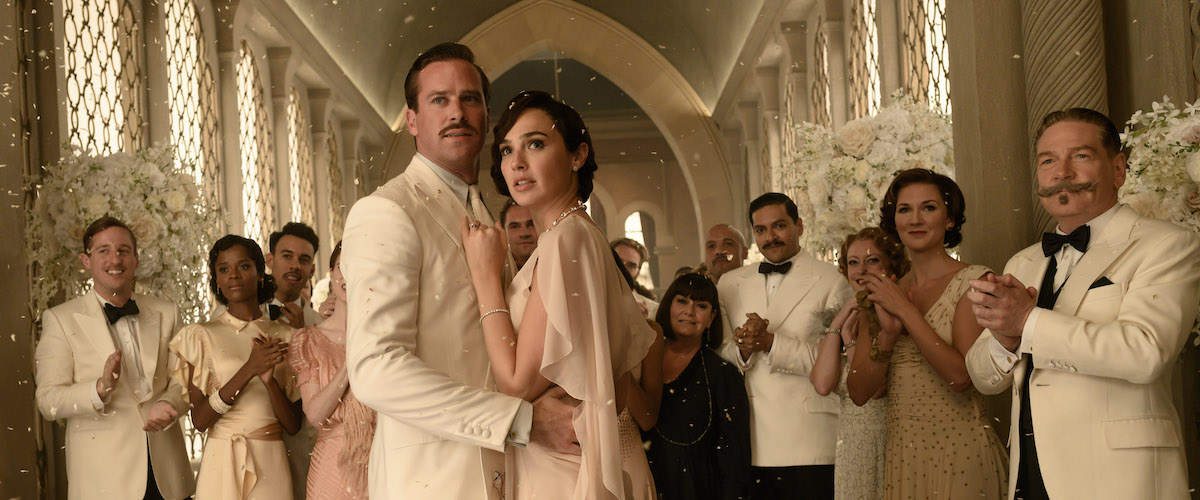Yes, show-business loves things that are fresh, flashy and new.
But some old tales still work well. Near the top of the list are Agatha Christie stories; two new examples:
–“Death on the Nile” (shown here), It opened this weekend in movie theaters, with Kenneth Branagh directing and starring as Hercule Poirot.
–“Why Didn’t They Ask Evans?” It’s a three-parter that starts streaming April 12 on Britbox, with Hugh Laurie writing, directing and taking a small role.
Both emerged during the Depression – “Evans” in 1934 (after a 1933 magazine version), “Nile” in 1937. Both benefit from the period: In modern times, we’d want people to use cell phones and security cameras and crime labs and such; back then, they mostly had their brains.
But in other ways, these two new projects are opposites.
For his Poirot movies, Branagh has stuck to well-known stories – first “Murder on the Orient Express” and now “Nile.” He gave them both a big-budget, richly cinematic look. Both are closed mysteries; the killers had to be someone on the train and someone on the boat. “Orient Express” has a great story that fits together perfectly; “Nile” mostly works, with a few things that feel stretched.
Laurie went the other way. “Evans” isn’t a closed mystery; at first, we don’t even know who the villain is … or who Evans is. And it’s far from a well-known tale. Laurie insists he’s liked it since boyhood, when he fell in love with the on-paper image of Frankie, the brash beauty who’s now played by Lucy Boynton.
“Evans” also ripples with droll verbal humor; “Nile” has two laughs, maybe more. But both projects show the eternal appeal of Christie.
Branagh doesn’t even remotely resemble the Poirot (a tiny Belgian) that Christie wrote of. But he retains the story (and Poirot’s mustache) and stocks it with solid actors and lush visuals.
Catch it in a movie theater, where it belongs. Then wait for “Evans” to stream into your home. In between, feel free to watch (or, even, read) more Christie.
